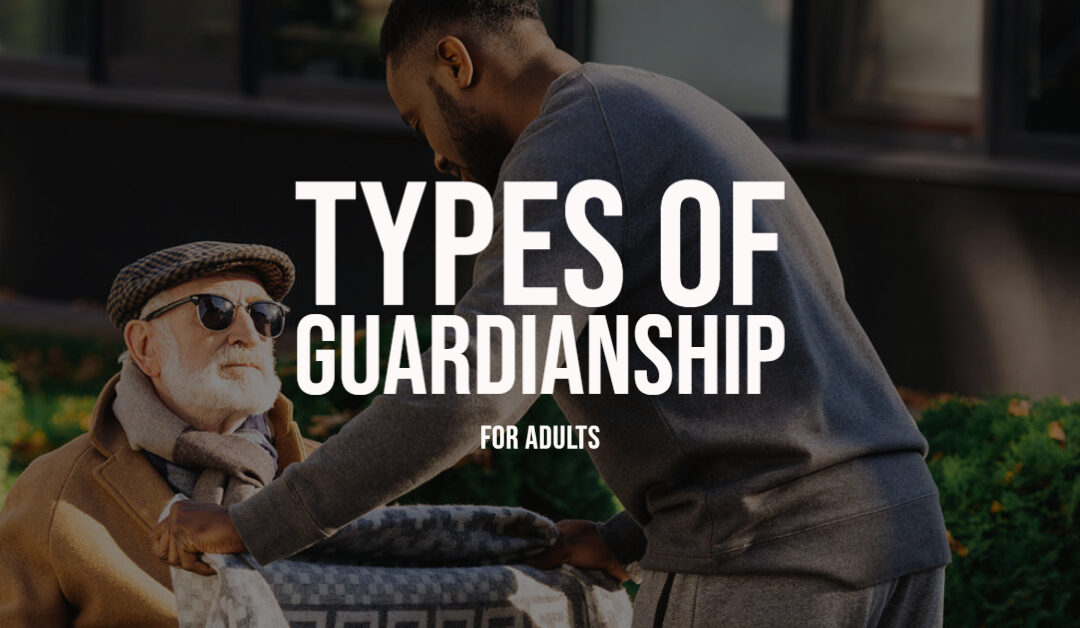If a loved one in your life is struggling to manage their money or take care of themselves, they may need help. But what if they don’t allow you to help in the ways they need assistance? In that case, you can petition the court to appoint a guardian. Some individuals only need support paying their bills or picking up groceries, while others need around-the-clock care. That’s why there are different types of guardianship for adults.
Filing a Petition for Guardianship
The first step to asking the court to appoint a guardian is filing a petition. Anyone may file a written petition with the Clerk of Superior Court asking them to rule on an individual’s incompetence and appoint a Guardian. You are the ” Petitioner ” if you file the petition, while the potentially incompetent individual is the “Respondent.” You may use form AOC-SP-200 from nccourts.org, called a “Petition for Adjudication of Incompetence and Application for Appointment of Guardian or Limited Guardian,” to file your petition.
Once you file your petition, the Clerk of Court in the county where your loved one lives in NC will schedule a hearing. The person you are attempting to prove “incompetent” will need to appear along with anyone else who needs to testify about their inability to make decisions for themselves. The court may order assessments for your loved one, and others may act as witnesses in the hearing.
The court will listen to arguments for and against the incompetence of the individual in question. If the court determines that the individual cannot make decisions for themselves, they will appoint a guardian based on their needs. Once your loved one receives a court’s determination of incompetence, they are called the “Ward.” The court then calls another hearing to appoint a “Guardian.”
Types of Guardianships
Based upon the abilities and needs of the Ward, the Court may appoint one or more of the following types of guardianship:
- Guardian of the Person – Authority over the personal care, residential, and medical decisions of a Ward. Think of this as power over everything except finances. You make provisions for care, including medical and psychological treatment, education, training, and employment. You also honor any written advance instructions from the Ward for their medical or mental health care.
- Guardian of the Estate – Authority over finances, but not personal care, residential, or medical decisions.
- General Guardian – Combined power of Guardian of the Person and Guardian of the Estate. Their general authority covers almost all aspects of their affairs.
- Limited Guardian – Specified limited authority that may include certain facets, such as only medical or only residential decisions. A court generally customizes a limited guardianship around specific needs and limitations.
Getting Appointed as Guardian
Once the court has makes a determination of incompetence, the next phase of the case begins, and a new proceeding commences to determine the most suitable Guardian. The Court will appoint the individual they believe will most act in the Ward’s best interests.
The Clerk of Court may appoint:
- An adult individual who is willing to serve as guardian
- A corporation
- A disinterested public agent such as a Director of Social Services
After the court appoints a Guardian, the Guardian receives a written order authorizing them to act on behalf of the Respondent, now called the Ward. The court may also spell out any limitations on the scope of guardian powers, stating the type of guardianship they currently hold.
Guardianship First Inventory
The court will require you to make a thorough report once appointed using AOC-E-206 “Application For Letters Of Guardianship For An Incompetent Person” to account for the Ward’s financial welfare. You’ll need to gain a working knowledge of the Ward’s assets and liabilities, including their:
- Real estate holdings
- Bank accounts, retirement accounts, insurance policies
- Stocks and bonds
- Motor vehicles
- Personal property and value
- Mortgages
- Taxes liabilities
- Credit card usage and balances
- Medical debt
- Other debts or liabilities
Responsibilities of a Guardian
The first thing to know in North Carolina is that guardians hold many responsibilities. Your most considerable responsibilities generally include these areas:
Living Arrangements: Making decisions about where the Ward will live may be simple or require a team of individuals. You will also want to consider the individual’s wishes and other interested parties’ thoughts.
Authorize Medical Treatments: This does not mean you need to be physically present at every doctor’s appointment, but it does mean you’ll need to be aware of the medical conditions of the individual, ensure their care is being coordinated, and be available to make decisions and authorize appropriate treatment.
Financial Care: Guardianships often include the authority to handle finances. If you have this authority, your additional work includes:
- Meticulous recordkeeping
- Careful accounting
- Fiduciary decision making
You’ll need to make an annual account every year as a Guardian. The Court will expect you to turn over all supporting documentation for their audit in a neat and organized way. Each time you file an annual accounting with the Clerk of Superior Court, you must sign under oath.
We Can Help
Contact us today with any questions or concerns you may have about guardianship for your loved one. We are here to assist with your initial petition to the court and to represent you in any hearings. You can also count on us to assist as you fulfill your administrative duties as a legal guardian. Get in touch today and find out how to get started protecting your loved one.

